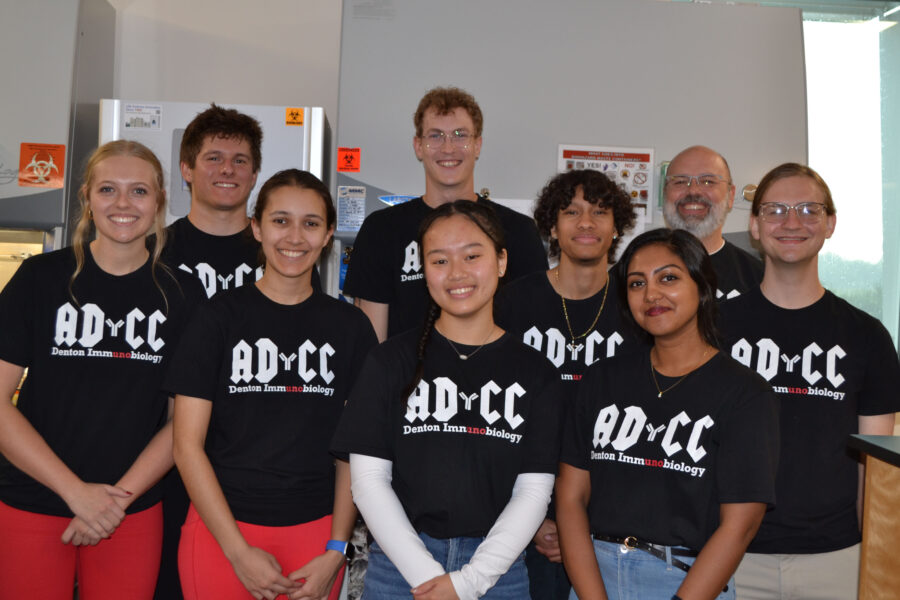Paul W. Denton, PhD, has a simple philosophy when it comes to his career.
“It’s all about the students. My mission is to build up students, particularly undergraduate students, and launch them into major successes upon graduation,” said Dr. Denton, an assistant professor of biology at the University of Nebraska at Omaha.
As a faculty mentor in the Nebraska INBRE program, Dr. Denton is able to fulfill his mission, by inviting undergraduates into his research lab at UNO where he studies immunobiology and recently received a $370,000 R-15 grant from the National Institutes of Health.
The funding will further Dr. Denton’s work on “dissecting the differential impacts of toll-like receptor nine (TLR9) agonism on the capacity of human natural killer (NK) cells to mediate target cell killing.”
The issue is the lack of a complete understanding of the impact of TLR9 agonism on human NK cells and why this kind of treatment increases the ability of human NK cells to directly kill malignant or infected cells but not necessarily increase the capacity of human NK cells to mediate antibody dependent cellular cytotoxicity (ADCC) against diseased cells.
To see how TLR9 agonist treatment worked in both instances, Dr. Denton and his lab invented a way to observe both forms of killing by primary human immune cells from the same human donor. In other words, his students study the effects of the treatment on NK cells’ ability to perform direct killing and ADCC at the same time while controlling for human-to-human differences.
“What we observed is the TLR9 agonist drug boosts the ability of NK cells to kill the diseased cells, but ADCC was not improved. That led us to wonder, why is that?” Dr. Denton said.
Dr. Denton and his students are building on previous research studies that he led in Denmark while he was an associate professor of clinical medicine at Aarhus University and Aarhus University Hospital.
“Preliminary data presented in the grant proposal suggests that the differential effects being observed could be due to the actions of a molecule called ADAM17. Namely, the action is that ADAM17 can remove a molecule called CD16 from the surface of activated NK cells. This is critical because CD16 is absolutely required for ADCC to occur,” Dr. Denton said.
Dr. Denton said his lab is focused on understanding the timing of this action and whether or not they can inhibit ADAM17 from doing its job, with the hope of seeing TLR9 agonism-mediated improvements in human NK cell’s ability to perform ADCC.
Since coming to UNO in 2019, Dr. Denton has had 19 undergraduate students rotate through his lab. Of these five have been or currently are NE-INBRE Scholars: Maia Bennett-Boehm, Cami Bisson, Angela Truong, Isabelle Weber and Jaden Nienhueser.
The camaraderie in the lab among the students was on full display during a recent visit to the lab with every student wearing t-shirts designed by Nienhueser.
“Because the focus of our lab includes natural killer cells killing their targets through ADCC, Jaden took another well-known design and added an antibody graphic between the AD and CC. We also highlighted the UNO in our lab name ‘Denton Immunobiology” to pay ohmage to the university,” Dr. Denton said.
The ability to compete for NE-INBRE funds and to recruit NE-INBRE scholars to work in his laboratory were major selling points for Dr. Denton as he was being recruited to Nebraska.
“It was something that I applied for immediately when I set foot on campus at UNO. Without INBRE I wouldn’t have as many quality scholars in my lab or the financial support and the means through connections to have been able to generate the preliminary data that led to us getting this award,” Dr. Denton said.
To learn more about one aspect of Dr. Denton’s research click here.
To see his lab in action click here.
